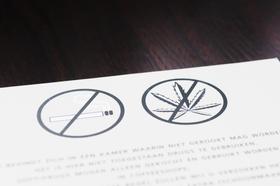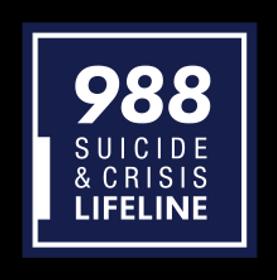The 2019 college admissions scandal proved that cheating is endemic throughout the secondary and tertiary levels of education. Cheating is not restricted to college admissions tests and applications. We find examples in the classroom, on term papers, projects, and more. I will omit a discussion of cheating in elementary school in this essay and cover it in another article.
In 2011, when I read about students paying another person to take their SATs, I was appalled. What were they thinking? And how did they pull it off? Looking back on my high school and university years, I realize now that it was tough to cheat in the 50s and 60s. That was because all of my examinations required us to write out our answers in pen. We didn't have multiple choice exams. No punch cards. I did occasionally hear of students who wrote out formulas on their palms or who looked over at a neighbor's answer book. But that was about it. Fast forward to the age of smartphones, and cheating has gone digital.
This video explains what contract cheating is and how it works.
Our role as parents
I will confess that I was, and, indeed, still am, a somewhat naive parent. I assume good things will happen. I also believe that my children will do the right thing. For the most part, and I can say this after long years of experience, things worked out as I expected. But that was then, many years ago, long before technology began to play such a significant role in our lives. If I were raising children in the 21st century, I would want to know everything I possibly could about how people use technology to facilitate cheating. Consequently, I recommend that you read Turnit In's free eBook, Everything You Need to Know About Contract Cheating
You should be aware that your children's teachers will be well aware of just about every kind of cheating. Discuss cheating and its ramifications with your children. Give them examples of what happens when cheaters get caught. Explain how heating can become a way of life if and when they allow it.
Most importantly, after pointing out the severe consequences of cheating, remind them you are always there for them. Confirm by your actions that you will always listen to them, no matter what. I firmly believe that this parenting approach is the best way to prevent cheating.
The forms of contract cheating
Essentially, contract cheating involves somebody else doing the academic work that you should have done. Typical forms of contract cheating include essay writing and test-taking. Several providers offer their services online for precisely those specific tasks. Moreover, students in both high school and college know about these providers. Therefore, both teachers and parents must address the issue of contract cheating directly. Don't equivocate. Explain how contract cheating works. Advise young people that just because their classmates and friends are "doing it," they must not follow suit. Peer pressure is a potent influence on a young person's life. Show them how to deal with peer pressure.
How to counter students using contract cheating
Many schools use proprietary software such as Turnitin, Grammarly, Chegg Writing, and dozens of similar programs to uncover cheating. But it works both ways, doesn't it? By that, I mean show your child how to use Grammarly or Turnitin to avoid using somebody else's work when writing a paper. You can also encourage your teachers to assign work that cannot easily be duplicated by national essay or term paper writers. For example, setting an assignment where students have to research and write a paper about some arcane local organization or historical event will pose a challenge for a national provider to produce written material promptly.
This video discusses research integrity.
How to counter parents using contract cheating
If you think teaching young people not to cheat is a challenge, the challenge is much more significant with parents. Their moral compasses were calibrated decades earlier. Therein lies the problem. They are set in their ways. If they cheated while they were in high school or college, then they probably think cheating is a means to an end. Add vast amounts of money to the equation, and those kinds of parents believe that money can buy anything. That's what you and I saw happen with the college admissions scandal of 2019. While the desire to have their children get into highly competitive colleges was common, the method to achieve that end was immoral and unethical. We parents ideally should be exemplars of what is right, moral, and ethical.
Exam impersonators
Engaging somebody to take an exam for you is much more common than you might think. From my point of view, it takes money to accomplish such cheating. Furthermore, it is probably illegal to do so. Unfortunately, some students think that they can get away with hiring somebody to take exams in their place. The only remedy is to punish offenders. These days, impersonation efforts can take place in an exam hall for a national test or online. Fortunately, organizations holding examinations that require either a physical presence in a proctored examination hall or online examinations now require stringent identification measures.
This video discusses cheating on online tests.
Conclusion
It's important for parents not to avoid discussing contract cheating specifically and cheating in general. Children must understand that they will be caught eventually when they cheat. Getting away with cheating in high school or college is one thing. However, it can lead to risky and potentially damaging behavior in later life, such as falsifying academic credentials or professional certifications. Most employers verify credentials as well as do background checks. The bottom line is that cheating is simply a risky venture that is not worth it. The stakes are too high. Discussing it frequently with our young people is the best way to counter cheating. Teach them what is right and what is wrong.
Questions? Contact us on Facebook. @privateschoolreview














